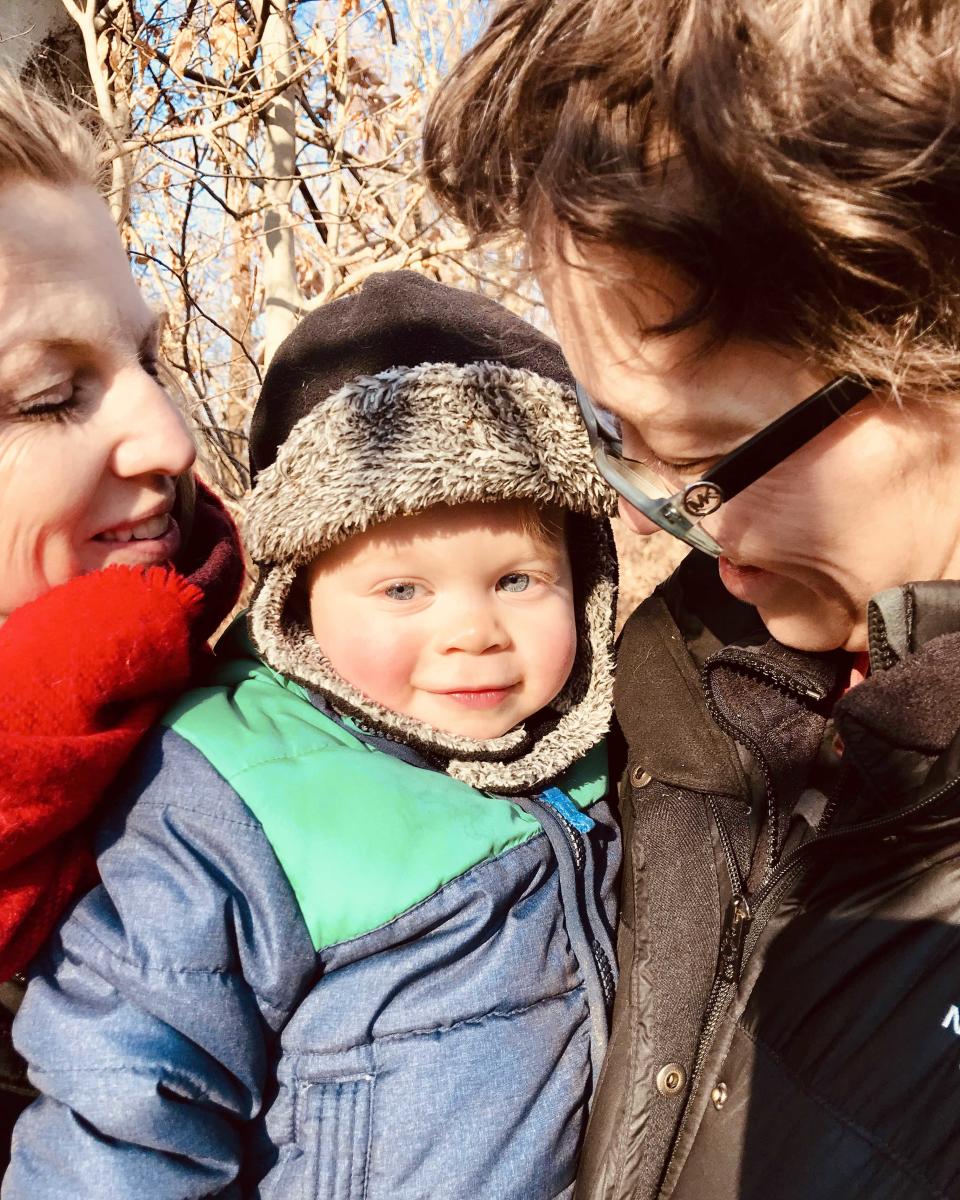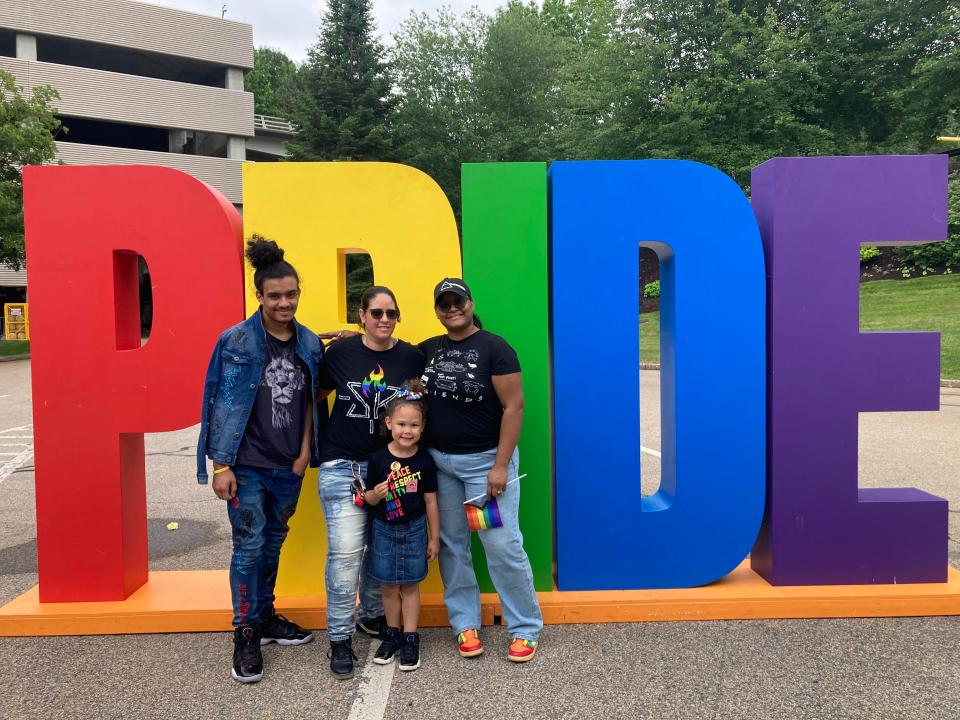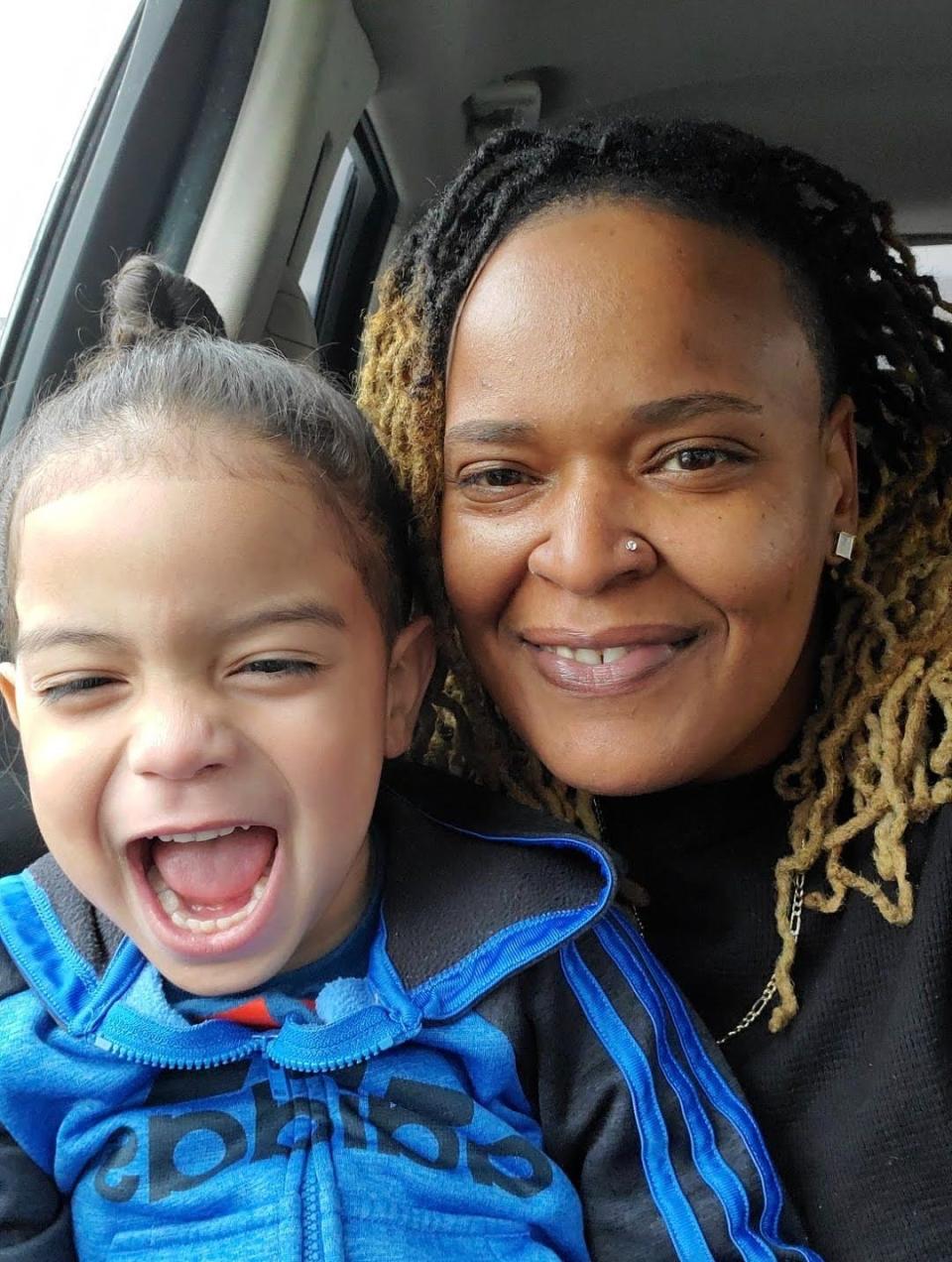‘Like I was a stranger’: What happens when state laws don’t recognize LGBTQ+ parents
- Oops!Something went wrong.Please try again later.
Sara Watson’s voice brims with emotion when she recalls the moment she and her partner, Anna Ford, found out they were pregnant.
The Rhode Island couple had been trying to conceive for 2.5 years − turning to in vitro fertilization as hope dwindled – when they finally got the news that rocked their world.
“I can’t say there is anything I could have wanted more than being a parent,” Watson said. ”I can’t even describe it; we were over the moon.”
But Watson’s bliss soon came crashing into reality even before she left the hospital. She learned that as an unmarried, LGBTQ+, non-birth parent, she had no legal connection to her son Eli beyond the embryo she helped create – and no straightforward path to establish that tie.
“It completely snowballed over any sort of joy that I had after my son was born,” she said.
Watson’s experience is not unique. A new report from five national groups that advocate for LGBTQ+ families shows that nearly half of all states – 24 − lack clear and equitable ways for LGBTQ+ couples to establish legal rights as parents.
And nearly 1 in 3 LGBTQ+ adults in the U.S. are raising children under the age of 18 − many in states with outdated, incomplete and confusing parentage laws, says the report from the Movement Advancement Project (MAP), GLAD, Family Equality, COLAGE and the National Center for Lesbian Rights.
The result: Too many children are at risk, said Naomi Goldberg, deputy director of MAP, a think tank that researches LGBTQ+ issues and laws.
“We know that when parents haven’t established that legal connection and they are not recognized, a lot of things can happen. There are the day-to-day things like picking up your kid from day care, signing a permission slip, or making a medical decision,” Goldberg said. “But there are also these bigger moments when crisis happens and you want to be sure you have the ability to stay connected to the child.”
'State of emergency': LGBTQ Americans given dire warning from Human Rights Campaign
'Increased urgency' to update laws since Dobbs
The issue of the legal parent-child relationship has taken on “increased urgency” for LGBTQ+ couples since the Supreme Court’s Dobbs decision a year ago that overturned Roe v. Wade, leaving many concerned that established rights such as same-sex marriage are on shaky ground, Goldberg said.
And just as there are many ways that children join families − including LGBTQ+ families − there are different routes to establishing parentage, the report notes. But no matter how children became part of families, states need to update parentage laws to assure all children are legally connected to those who parent them, Goldberg said.
“When these protections don’t exist, kids are ultimately the ones who bear the impact of not having a consistent caregiver and being cut off from someone who has been parenting them,” she said.

'Both of these kids have my egg'
Watson signed mountains of consent forms during the assisted reproduction process and consulted a lawyer who thought she would be able to sign a Voluntary Acknowledgement of Parentage (VAP) – a simple form that is the equivalent of a court judgment of parentage − at the hospital when Eli was born. But Watson learned that while unmarried different-sex couples had access to the VAP process in Rhode Island at the time, same-sex couples did not.
She would embark on a grueling eight-month ordeal, including home visits by a social worker, before gaining a legal connection to Eli, now 6, who loves trains, Legos and anything involving mud.
The couple even had to place an ad in the newspaper to notify the anonymous sperm donor of the pending adoption in case he wanted to mount a challenge – despite signing away his rights at the sperm bank, she said.
The whole process “felt extremely invasive,” Watson said. “And we were frankly really worried that anybody could have shown up at the courthouse and prevented us from adopting our kid.”
The couple now have a second son, Jacob, born in 2021, and by then Rhode Island had updated its parentage laws so Watson was able to easily sign a VAP. The different paths to legal parenthood were astonishing, she said: “Both of these kids have my egg and a donor’s DNA. I am literally the same parent of these two genetically identical beings.”

'We can't talk to you. We have to talk to the mother.'
Denise and Stephanie Ocasio-Gonzalez started dating in 2010 when Stephanie’s son Jayvin was 3 years old. Jayvin and Denise bonded almost immediately, Stephanie said, with park adventures, McDonald’s visits, ice cream outings − and a passion for wrestling.
“She was almost like a big kid herself,” Stephanie said. “She bought him his first bike. She was there for his first day of kindergarten and for every first day of school after that.”
'But most of all I'm human': These 3 transgender teens prove identity stretches beyond one label
Even after the Connecticut couple married in 2014, they were reminded at schools and elsewhere of the tenuous legal connection Denise had to Jayvin. “You raise this child, you took care of this child, you bandaged boo-boos, you gave kisses goodnight …. You put a roof over this child’s head, you put food in this child’s stomach. And then you have to be told ‘oh we can’t talk to you. We have to talk to the mother,'” Stephanie said.
The couple researched adoption options, but the process was costly and time-consuming, she said. “We hoped our marriage, our dedication to each other and Denise’s dedication to Jayvin would be enough,” she said.
The two wanted to keep building their family, and after some fertility challenges, Stephanie gave birth to their second child, Dessanie. It was a tumultuous time: Stephanie had a challenging pregnancy, and Denise was injured in a car accident. They paused plans for a second-parent adoption of Dessanie by Denise so they could heal.
But the question always lurked, Stephanie said: Why should Denise have to endure so many legal hoops to be recognized as a parent for the children they were raising?
They decided to fight back, manning the front lines of a successful push to get Connecticut to update its parentage laws. In January 2022, they signed a VAP securing legal protection for Dessanie, now 4. Securing the legal tie between Denise and Jayvin, now 16, under the Connecticut Parentage Act is in the works, Stephanie said.

'He was planned. He's my son.'
Kam Thompson and her partner were going to marry before the son they planned for was born. Parenthood was something “we were super excited” about, she said. But Daniel arrived prematurely in 2016, and the Massachusetts couple tied the knot three days after his birth.
When Daniel was 2, the state’s Department of Children and Families abruptly removed Daniel from their home and placed him in foster care after unfounded claims of domestic violence between the couple, Thompson said.
That is when Thompson ran smack into the state’s parentage laws as the non-birth, LGBTQ+ parent, and she wasn’t able to see her son for two months. “They looked at me like I was a stranger,” she said. “I wasn’t privy to any court dates or independent visits.”
LGBTQ identification: Gen Z is driving force among adults identifying as LGBTQ, poll shows. Here's a breakdown.
Thompson’s first visit with Daniel during the ordeal was around his 3rd birthday. She recalls the heart-wrenching moment her little boy entered the room “and he sees me and you can see the confusion. He has kind of forgotten me, but then it’s like ‘I know this person.’ You can see it on his face.”
With the help of an attorney, Thompson was finally recognized as Daniel’s legal parent. But the process would drag on for 18 months. “You have to learn your own kid all over again,” she said.
The couple now share time with Daniel, now 7, a happy boy who relishes video games and watching movies, she said.
Massachusetts has pending legislation to update its parentage laws, and Thompson said it’s long overdue for the other Daniels in her state. “He was planned. He’s my son. We’ve got to protect the kids and the parent-kid relationship.”
This article originally appeared on USA TODAY: States urged to update parentage laws to protect LGBTQ+ parents, kids

